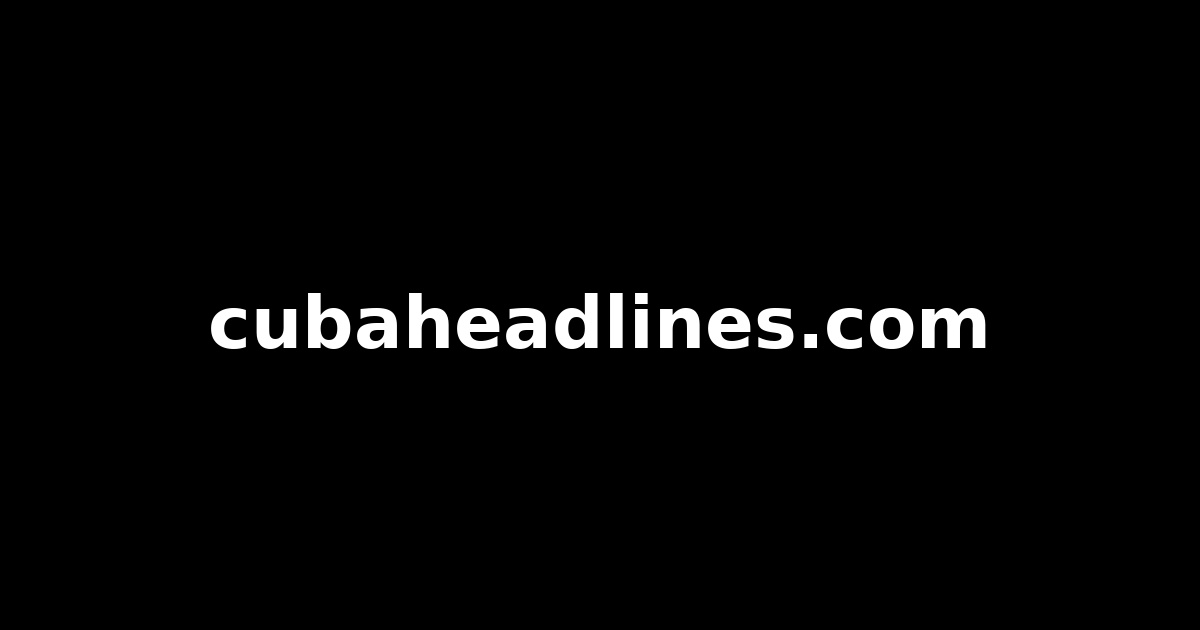KDU-?SL head criticises EU approach after a private visit to Cuba
- Submitted by: admin
- Europe
- International
- Politics and Government
- 07 / 03 / 2009

Cyril Svoboda, head of the Czech Christian Democrats (KDU-CSL) and former foreign minister, criticised the EU's pragmatic approach to Havana on arrival from a private visit to Cuba Thursday.
Svoboda set out for the trip in cooperation with the People in Need foundation on June 27, without any publicity.
He told journalists Thursday that only the Czech, Dutch and Polish embassies distribute medicines to the Cuban people who need them.
The other EU countries unfortunately have preferred pragmatic policy to a free approach and a dialogue, Svoboda said.
One year ago, the EU decided to lift the sanctions it had imposed on Cuba in reaction to Cuban communist bodies' intervention against local dissidents in 2003.
The sanctions were formally suspended in 2005 and the EU representatives started visiting Cuba again.
Svoboda Thursday said only few of them meet dissidents. On the contrary, they show cordial relations with the official representatives of Cuba, an undemocratic state, Svoboda said.
The Czech Republic was in the past opposed to the abolition of the sanctions, that was promoted mainly by Spain.
The Cuban communist regime seemed to be weakening after Fidel Castro's brother Raul came to power a couple of years ago.
According to the latest reports by the People in Need foundation, the Cuban government has toughened repression against the local inhabitants again.
In Cuba, Svoboda met local dissidents whom he visited in their homes. He told journalists he is sure of having been spied on.
"It is an exciting experience to be reminded of what the situation in the Czech Republic was like many years ago [before 1989], though in Cuba it is worse," Svoboda said.
He said European countries can feel ashamed for giving up the policy of defending human rights in Cuba.
Svoboda is another Czech politician to visit Cuba.
In 2005, Karel Schwarzenberg, senator for Freedom Union (US-DEU), was expelled from Cuba over meeting local dissidents.
In January 2001, a trip to Cuba was made by Freedom Union deputy Ivan Pilip and former student leader Jan Bubenik. They were arrested by the Cuban police and released only after an intervention of then Czech Senate chairman Petr Pithart.
The Czech Republic has been for many years active in fighting for human rights observance in Cuba.
Cuban dissidents have been significantly supported by former Czech president Vaclav Havel, himself a leading Czechoslovak dissident before 1989.
In September 2002, in his capacity as Czech president, he met the Cuban exile leaders in Miami, the USA. It was at Havel's initiative that the International Committee for Democracy in Cuba (ICDC) was established in 2003.
Source: Prague Daily Monitor
Svoboda set out for the trip in cooperation with the People in Need foundation on June 27, without any publicity.
He told journalists Thursday that only the Czech, Dutch and Polish embassies distribute medicines to the Cuban people who need them.
The other EU countries unfortunately have preferred pragmatic policy to a free approach and a dialogue, Svoboda said.
One year ago, the EU decided to lift the sanctions it had imposed on Cuba in reaction to Cuban communist bodies' intervention against local dissidents in 2003.
The sanctions were formally suspended in 2005 and the EU representatives started visiting Cuba again.
Svoboda Thursday said only few of them meet dissidents. On the contrary, they show cordial relations with the official representatives of Cuba, an undemocratic state, Svoboda said.
The Czech Republic was in the past opposed to the abolition of the sanctions, that was promoted mainly by Spain.
The Cuban communist regime seemed to be weakening after Fidel Castro's brother Raul came to power a couple of years ago.
According to the latest reports by the People in Need foundation, the Cuban government has toughened repression against the local inhabitants again.
In Cuba, Svoboda met local dissidents whom he visited in their homes. He told journalists he is sure of having been spied on.
"It is an exciting experience to be reminded of what the situation in the Czech Republic was like many years ago [before 1989], though in Cuba it is worse," Svoboda said.
He said European countries can feel ashamed for giving up the policy of defending human rights in Cuba.
Svoboda is another Czech politician to visit Cuba.
In 2005, Karel Schwarzenberg, senator for Freedom Union (US-DEU), was expelled from Cuba over meeting local dissidents.
In January 2001, a trip to Cuba was made by Freedom Union deputy Ivan Pilip and former student leader Jan Bubenik. They were arrested by the Cuban police and released only after an intervention of then Czech Senate chairman Petr Pithart.
The Czech Republic has been for many years active in fighting for human rights observance in Cuba.
Cuban dissidents have been significantly supported by former Czech president Vaclav Havel, himself a leading Czechoslovak dissident before 1989.
In September 2002, in his capacity as Czech president, he met the Cuban exile leaders in Miami, the USA. It was at Havel's initiative that the International Committee for Democracy in Cuba (ICDC) was established in 2003.
Source: Prague Daily Monitor
Comments